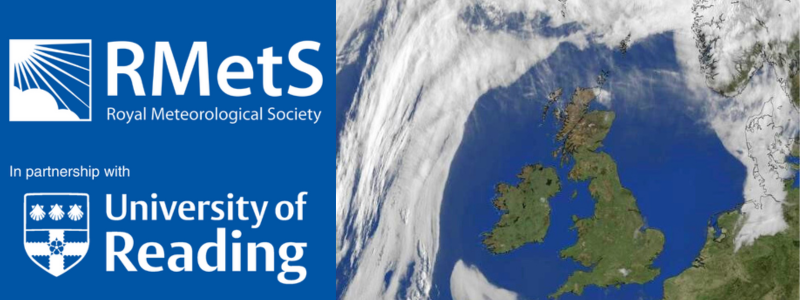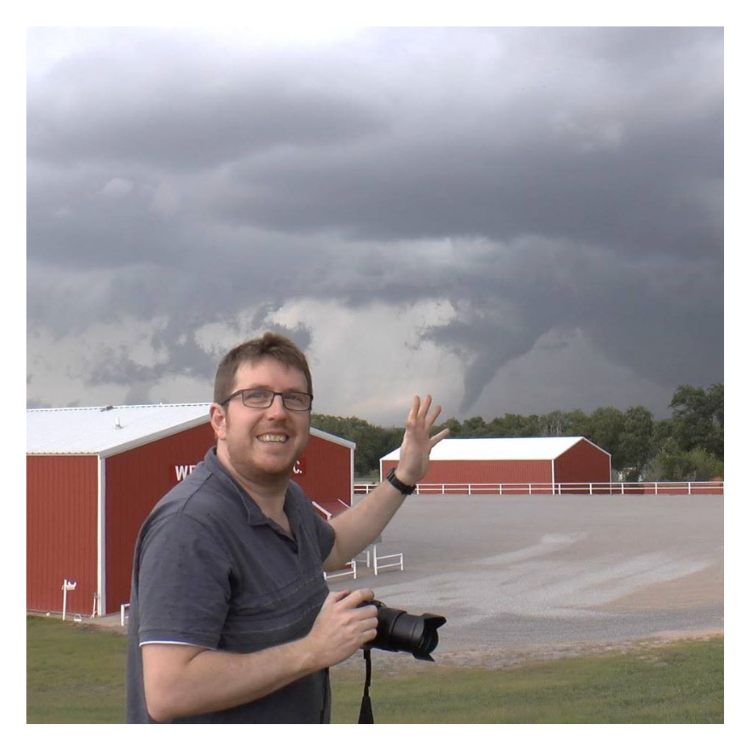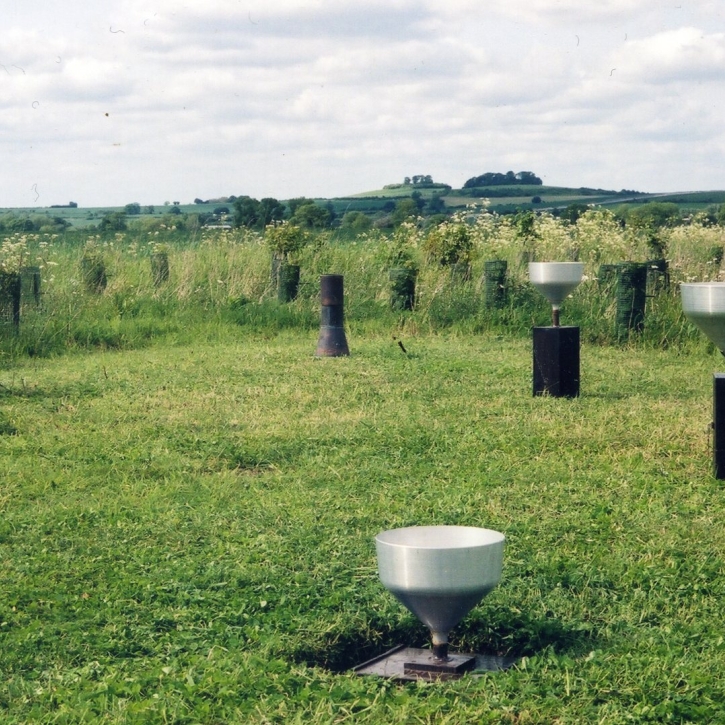

Masterclass | Anticipating Climate Risk in Infrastructure Using Atmospheric Circulation Patterns
LOCATION
Reliable and affordable infrastructure systems are the backbone of modern service-based economies. From communications and energy to transport and water, a key feature of these systems is their interconnectedness - that is, an event at a particular place and time has consequences that ripple throughout an extended network and period.
This talk explored how weather and climate information propagates through to consequences and decision-making value in these complex systems. A particular focus was to demonstrate how atmospheric circulation patterns can be used to support deeper physical understanding of processes, to derive more skilful extended-range predictions, and help to inform decision-making on timescales from several days to many decades. Recent examples were drawn from energy-system applications including: the use of pattern-based methods to exploit conditional predictability, and the use of multi-decadal climate and climate-change datasets for assessing extreme weather-stress.
Speaker
Professor David Brayshaw
 David Brayshaw is a Professor of Climate Science and Energy-Meteorology, and joint Head of the Department of Meteorology at the University of Reading. Brayshaw’s interests span both fundamental and applied climate science, with a particular focus on the application of climate information in the energy sector. He has led contributions to several large multi-national research projects, including two prototype “climate services for energy” (ECEM, S2S4E) and the pan-European advanced climate modelling research programme (PRIMAVERA), and much of his work features close collaboration with industry stakeholders. Brayshaw founded and chairs the interdisciplinary “Next Generation Challenges in Energy-Climate Modelling” workshop series which brings together more than 100 researchers from around the world, across energy- and climate- science, industry and policy. Brayshaw is a Fellow of the Royal Meteorological Society and is also founding co-chair of the RMetS “Energy” special interest group.
David Brayshaw is a Professor of Climate Science and Energy-Meteorology, and joint Head of the Department of Meteorology at the University of Reading. Brayshaw’s interests span both fundamental and applied climate science, with a particular focus on the application of climate information in the energy sector. He has led contributions to several large multi-national research projects, including two prototype “climate services for energy” (ECEM, S2S4E) and the pan-European advanced climate modelling research programme (PRIMAVERA), and much of his work features close collaboration with industry stakeholders. Brayshaw founded and chairs the interdisciplinary “Next Generation Challenges in Energy-Climate Modelling” workshop series which brings together more than 100 researchers from around the world, across energy- and climate- science, industry and policy. Brayshaw is a Fellow of the Royal Meteorological Society and is also founding co-chair of the RMetS “Energy” special interest group.
Responders
Will Hodder
 Will Hodder is a research engineer in the Natural Hazards and Environment research team at the R&D UK Centre within EDF Energy. A core part of the team’s work is to help ensure that EDF’s nuclear power plants in the UK are resilient and safe in the face of extreme weather and climate change. In this role, Will applies and develops statistical methods based on extreme value theory for various stand-alone and compound hazards, and provides expert support to stakeholders.
Will Hodder is a research engineer in the Natural Hazards and Environment research team at the R&D UK Centre within EDF Energy. A core part of the team’s work is to help ensure that EDF’s nuclear power plants in the UK are resilient and safe in the face of extreme weather and climate change. In this role, Will applies and develops statistical methods based on extreme value theory for various stand-alone and compound hazards, and provides expert support to stakeholders.
Will has a masters in astrophysics from the University of Manchester and recently completed his PhD in mountain meteorology at the University of East Anglia, specifically on the topic of turbulent flux representation in the lee of mountains in numerical weather prediction models. He did part of his studies at the Met Office as part of a CASE partnership, and he co-organised and taught scientific python courses to academics and CEFAS personnel.
Paul Knightley
 Paul has worked at DTN (formally MeteoGroup) for just over 23 years. For much of this time, he was a shift forecaster, but also managed the UK weather team for 10 years between 2012 and 2022. In the summer of 2022, Paul accepted the position of Senior Weather Risk Manager for DTN’s European operations, which includes leading all DTN’s European weather teams, as well as liaising with colleagues worldwide about DTN’s future weather operations.
Paul has worked at DTN (formally MeteoGroup) for just over 23 years. For much of this time, he was a shift forecaster, but also managed the UK weather team for 10 years between 2012 and 2022. In the summer of 2022, Paul accepted the position of Senior Weather Risk Manager for DTN’s European operations, which includes leading all DTN’s European weather teams, as well as liaising with colleagues worldwide about DTN’s future weather operations.
Paul’s meteorological specialisms include Transport weather (specifically winter roads weather), and severe thunderstorms. The latter interest has seen him travel to the USA on 19 occasions to go storm chasing. Paul is a Fellow of the Royal Meteorological Society, and a Registered Meteorologist.
Registration
REGISTRATION IS NOW CLOSED.
Masterclass Series Abstract
Continuing our online Meteorological Masterclasses in partnership with the University of Reading, we are pleased to announce a new Masterclass series in “Atmospheric Blocking: Dynamics, Predictability, Impacts and Climate
During this series, three leading experts from the University of Reading will discuss the latest scientific advances for understanding and predicting weather, climate, and its impacts. Topics to be covered include the fundamentals of blocking, anticipating climate risk in infrastructure using atmospheric circulation patterns and representation of blocking in modes and climate projections.
These masterclasses are intended to provide support for professionals working in Meteorology and Climate Science, and its operational applications who wish to remain up to date on recent scientific developments in the field.
Masterclasses will run weekly on Wednesday’s 18 October, 01 November and 08 November 2023 from 3 pm to 4.30 pm (UTC), consisting of a presentation followed by the opportunity for questions and discussion with the speaker. Whilst the webinars are part of a series, attendance at all three events is not compulsory.
Sessions will be available as videos for any member who has registered but cannot attend. All registrants will have an option to email questions up to one week after the date of them going live.
Reliable and affordable infrastructure systems are the backbone of modern service-based economies. From communications and energy to transport and water, a key feature of these systems is their interconnectedness - that is, an event at a particular place and time has consequences that ripple throughout an extended network and period.
This talk explored how weather and climate information propagates through to consequences and decision-making value in these complex systems. A particular focus was to demonstrate how atmospheric circulation patterns can be used to support deeper physical understanding of processes, to derive more skilful extended-range predictions, and help to inform decision-making on timescales from several days to many decades. Recent examples were drawn from energy-system applications including: the use of pattern-based methods to exploit conditional predictability, and the use of multi-decadal climate and climate-change datasets for assessing extreme weather-stress.
Speaker
Professor David Brayshaw
 David Brayshaw is a Professor of Climate Science and Energy-Meteorology, and joint Head of the Department of Meteorology at the University of Reading. Brayshaw’s interests span both fundamental and applied climate science, with a particular focus on the application of climate information in the energy sector. He has led contributions to several large multi-national research projects, including two prototype “climate services for energy” (ECEM, S2S4E) and the pan-European advanced climate modelling research programme (PRIMAVERA), and much of his work features close collaboration with industry stakeholders. Brayshaw founded and chairs the interdisciplinary “Next Generation Challenges in Energy-Climate Modelling” workshop series which brings together more than 100 researchers from around the world, across energy- and climate- science, industry and policy. Brayshaw is a Fellow of the Royal Meteorological Society and is also founding co-chair of the RMetS “Energy” special interest group.
David Brayshaw is a Professor of Climate Science and Energy-Meteorology, and joint Head of the Department of Meteorology at the University of Reading. Brayshaw’s interests span both fundamental and applied climate science, with a particular focus on the application of climate information in the energy sector. He has led contributions to several large multi-national research projects, including two prototype “climate services for energy” (ECEM, S2S4E) and the pan-European advanced climate modelling research programme (PRIMAVERA), and much of his work features close collaboration with industry stakeholders. Brayshaw founded and chairs the interdisciplinary “Next Generation Challenges in Energy-Climate Modelling” workshop series which brings together more than 100 researchers from around the world, across energy- and climate- science, industry and policy. Brayshaw is a Fellow of the Royal Meteorological Society and is also founding co-chair of the RMetS “Energy” special interest group.
Responders
Will Hodder
 Will Hodder is a research engineer in the Natural Hazards and Environment research team at the R&D UK Centre within EDF Energy. A core part of the team’s work is to help ensure that EDF’s nuclear power plants in the UK are resilient and safe in the face of extreme weather and climate change. In this role, Will applies and develops statistical methods based on extreme value theory for various stand-alone and compound hazards, and provides expert support to stakeholders.
Will Hodder is a research engineer in the Natural Hazards and Environment research team at the R&D UK Centre within EDF Energy. A core part of the team’s work is to help ensure that EDF’s nuclear power plants in the UK are resilient and safe in the face of extreme weather and climate change. In this role, Will applies and develops statistical methods based on extreme value theory for various stand-alone and compound hazards, and provides expert support to stakeholders.
Will has a masters in astrophysics from the University of Manchester and recently completed his PhD in mountain meteorology at the University of East Anglia, specifically on the topic of turbulent flux representation in the lee of mountains in numerical weather prediction models. He did part of his studies at the Met Office as part of a CASE partnership, and he co-organised and taught scientific python courses to academics and CEFAS personnel.
Paul Knightley
 Paul has worked at DTN (formally MeteoGroup) for just over 23 years. For much of this time, he was a shift forecaster, but also managed the UK weather team for 10 years between 2012 and 2022. In the summer of 2022, Paul accepted the position of Senior Weather Risk Manager for DTN’s European operations, which includes leading all DTN’s European weather teams, as well as liaising with colleagues worldwide about DTN’s future weather operations.
Paul has worked at DTN (formally MeteoGroup) for just over 23 years. For much of this time, he was a shift forecaster, but also managed the UK weather team for 10 years between 2012 and 2022. In the summer of 2022, Paul accepted the position of Senior Weather Risk Manager for DTN’s European operations, which includes leading all DTN’s European weather teams, as well as liaising with colleagues worldwide about DTN’s future weather operations.
Paul’s meteorological specialisms include Transport weather (specifically winter roads weather), and severe thunderstorms. The latter interest has seen him travel to the USA on 19 occasions to go storm chasing. Paul is a Fellow of the Royal Meteorological Society, and a Registered Meteorologist.
Registration
REGISTRATION IS NOW CLOSED.
Masterclass Series Abstract
Continuing our online Meteorological Masterclasses in partnership with the University of Reading, we are pleased to announce a new Masterclass series in “Atmospheric Blocking: Dynamics, Predictability, Impacts and Climate
During this series, three leading experts from the University of Reading will discuss the latest scientific advances for understanding and predicting weather, climate, and its impacts. Topics to be covered include the fundamentals of blocking, anticipating climate risk in infrastructure using atmospheric circulation patterns and representation of blocking in modes and climate projections.
These masterclasses are intended to provide support for professionals working in Meteorology and Climate Science, and its operational applications who wish to remain up to date on recent scientific developments in the field.
Masterclasses will run weekly on Wednesday’s 18 October, 01 November and 08 November 2023 from 3 pm to 4.30 pm (UTC), consisting of a presentation followed by the opportunity for questions and discussion with the speaker. Whilst the webinars are part of a series, attendance at all three events is not compulsory.
Sessions will be available as videos for any member who has registered but cannot attend. All registrants will have an option to email questions up to one week after the date of them going live.





